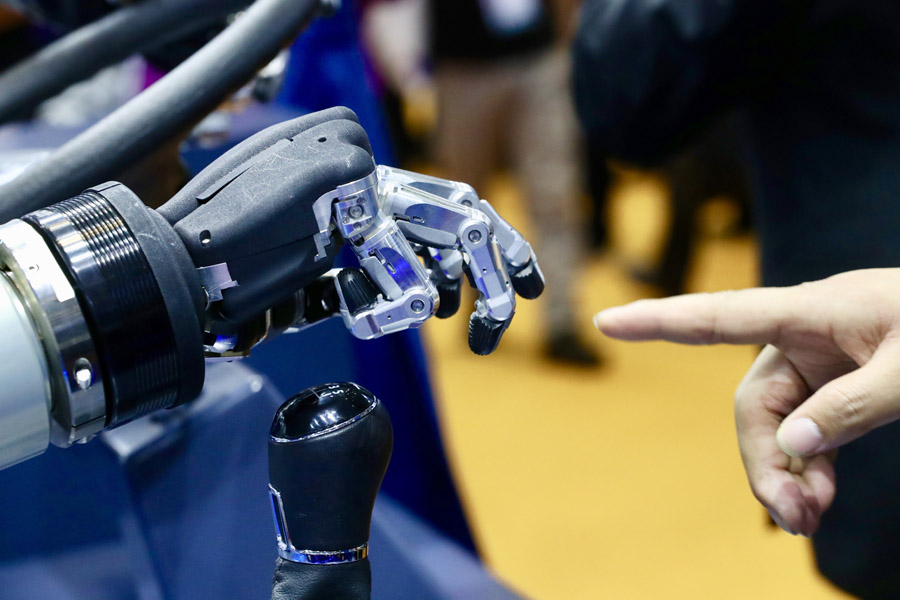Productivity gets boost from 'new IT'
By OUYANG SHIJIA | CHINA DAILY | Updated: 2020-07-15 09:03

Integrated development to help the country move up global value chain
China is ramping up the integrated development of next-generation information technology and manufacturing for better productivity and high-quality development amid renewed efforts to sustain innovation-driven development in the long run, experts said on Tuesday.
With most of the existing and old growth models starting to slow down, it is imperative for China to embrace new technologies for high-quality development so as to transform the country into a manufacturing power, they said.
Zhang Li, head of the China Center for Information Industry Development, said the integrated development of new IT and manufacturing will promote digital transformation in the related industries, promote China's advancement into the mid-to high-end of the global value chain as well as hedge against the COVID-19 effect.
"Supply disruptions and cancellation of export orders have affected industrial and supply chains in the country," Zhang said in an article posted on the WeChat account of the Big Data Industry Alliance of China. "With the help of digital platforms, some manufacturing companies have been able to monitor market changes, production capabilities and other related situations," he said.
"Amid a rapidly changing external environment and massive disruptions to the economy from the novel coronavirus epidemic, the construction of an open, collaborative and networked platform will help companies fully integrate global industrial and supply chain resources and be better prepared to cater to the demand," Zhang said.
Pan Helin, executive director of the Digital Economy Academy of the Zhongnan University of Economics and Law in Hubei province, said: "Developed areas along the east coast were less affected by the novel coronavirus epidemic due to their intelligent and digital transformation."
The onset of the Fourth Industrial Revolution has been characterized by the internet of everything and information technology and this in turn will propel a data revolution across the world.
"Judging by the present trends, China needs to accelerate its push for integrated development of new IT and manufacturing, a prerequisite for it to gain a competitive edge in the global market," said Pan.
After years of development, the digital economy is now the integral driving force for economic growth, said a recent white paper published by the China Academy of Information and Communications Technology. The Development of China's Digital Economy (2020) report said that compared with the services sector, China's industry and manufacturing had greater room for integrated development with the digital economy.
According to the report, the added value of China's industrial digitalization reached 28.8 trillion yuan ($4.1 trillion) in 2019, accounting for 29 percent of the country's GDP. The penetration rate of digital economy in the service, industrial engineering and agriculture industry hit 37.8 percent, 19.5 percent and 8.2 percent last year.
Zhao Yingfang, general manager of the Shandong-based Uniorange Design Co Ltd, said the next-generation IT will offer strong support for manufacturing upgrade, cut costs for companies and improve efficiency.
"Intelligent technologies like artificial intelligence and the Internet of Things are leading to the next wave of industrial revolution in manufacturing," Zhao said. "The next-generation IT will help blur the lines of the physical world, region, time, span, space and resource spheres. Emerging technologies such as the internet of things and AI will help build an open, win-win and resources sharing ecosystem.
"As many traditional manufacturing companies are not based in first-tier cities and developed areas, it is really difficult for them to bring in top talent. Our platform will help break through the limitations of time and space and allow enterprises from different regions to connect with design resources and find innovation opportunities."
























